‘A aeolian’ is the 6th mode of the C major scale. The notes in A aeolian are:
A – B – C – D – E – F – G
If you have read the post on understanding the aeolian mode, you will know that the aeolian mode contains a ‘flat 3’, ‘flat 6’ and ‘flat 7’ (parallel approach). You will also know that it is the 6th mode of the Major scale (derivative approach). Let’s briefly look at how to construct A aeolian using both the parallel approach and the derivative approach.
A aeolian is often referred to as the A natural minor scale. The natural minor scale is often viewed as the default minor scale for theoretical purposes.
A Aeolian Mode Using The Parallel Approach
A Major has the following notes:
A# – B – C# – D – E – F# – G#
If we flatten the 3rd note (C#), the 6th note (F#) and the 7th note (G#) we get the following:
A – B – C – D – E – F – G
A Aeolian Mode Using The Derivative Approach
A is the 6th note of the C major scale:
C – D – E – F – G – A – B
If we play the C Major scale and start on the 6th note we get the following:
A – B – C – D – E – F – G
Let’s look at the A aeolian mode in the different positions on the guitar fretboard:
A Aeolian in the Open Position
Firstly, let’s look at the open position:
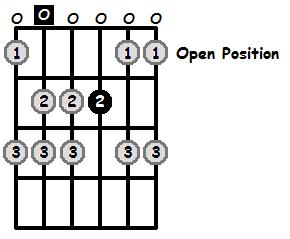
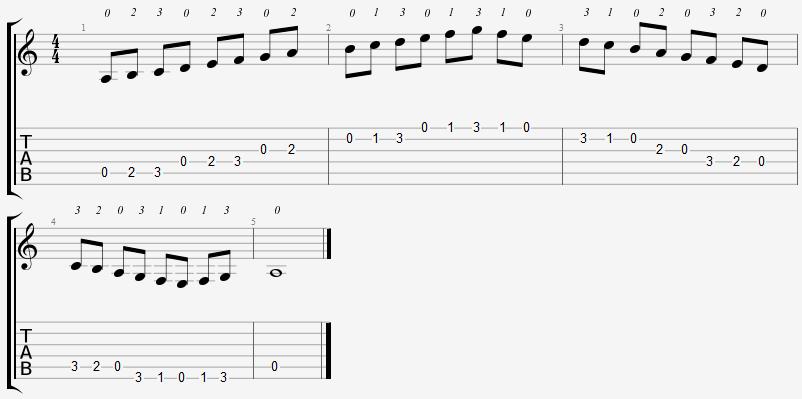
A Aeolian Mode CAGED Positions
Now let’s look at A aeolian in the 5 different CAGED positions along the fretboard.
A Aeolian in the 1st Position (Lowest Fret is 1)

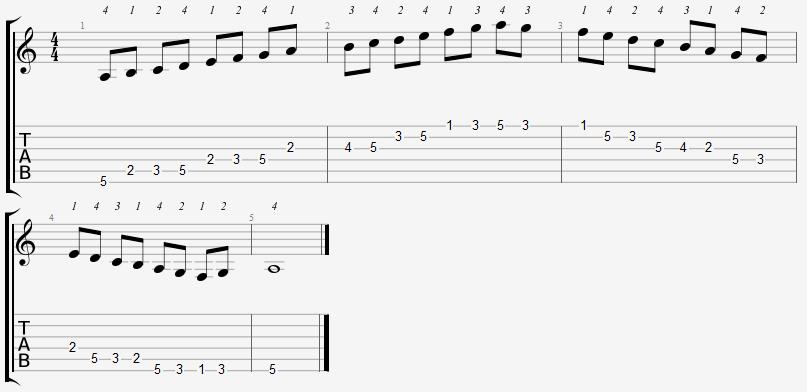
A Aeolian in the 4th Position (Lowest Fret is 4)
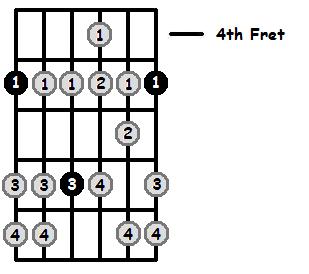
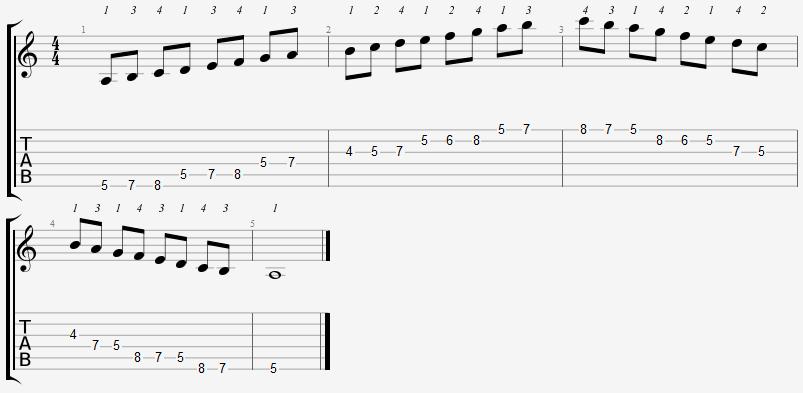
A Aeolian in the 7th Position (Lowest Fret is 7)
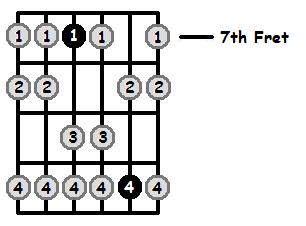

A Aeolian in the 8th Position (Lowest Fret is 8)
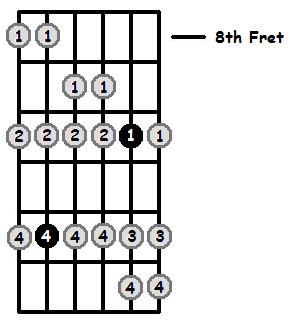
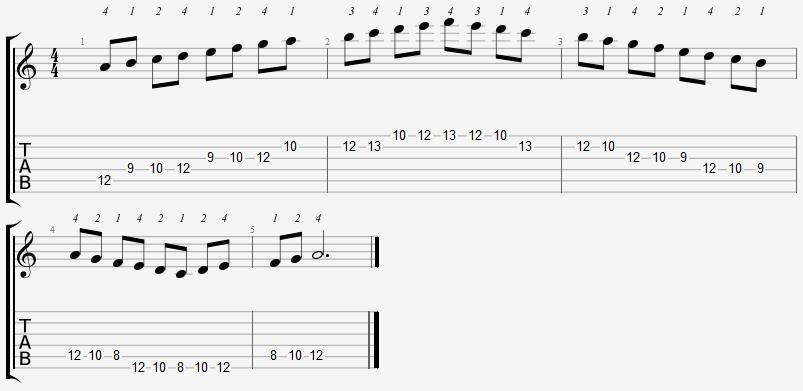
A Aeolian in the 12th Position (Lowest Fret is 12)

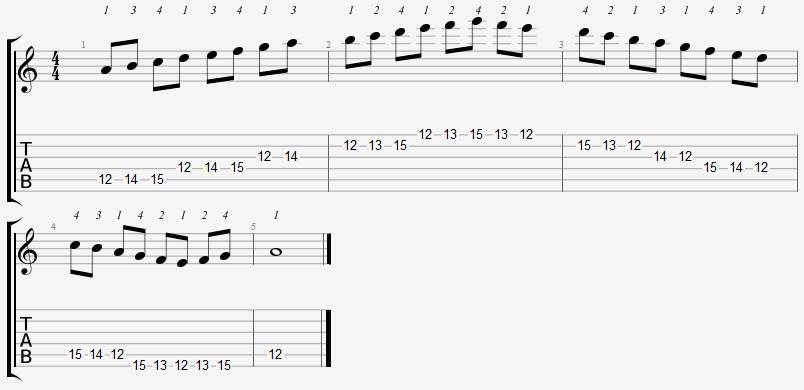
That covers the 5 basic positions and the open position of A aeolian along the guitar fretboard. For an in depth explanation of the aeolian mode, check out aeolian mode explained.
Further Reading
- Am chord (A aeolian works well over this chord)
- Am7 chord A aeolian works well over this chord)
- C Major scale (A Aeolian is the sixth mode of the C Major scale)
